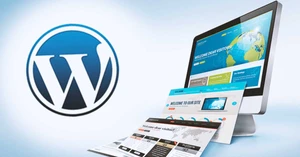What is ECM or Enterprise Content Management System
ECM software solutions are meant to capture, digitize, manage, organize and archive the available unstructured content into digital files. Content management tools ensure the security of digitized content and make them easily shareable and retrievable. Enterprise content management system helps organize Word documents, scanned copies, PDFs, PowerPoint presentations, Excel spreadsheets, and more.
Digitization today is the new normal and saving paper is the trending environmental concern. Content management software comes at the right time to help address these concerns and make it possible for companies to streamline the content management lifecycle.
What’s the Importance of Enterprise Content Management System (ECM System)
CMS tools help in managing the content lifecycle by:
- Helps in compiling information and taking notes
- Publishing the content either on an intranet or a website
- Archiving the content automatically
- Deleting old unused content and creating more room for new content
- Securely storing the content
- Easy search option and quick file access
- Capturing different files from multiple locations and classifying them
- Powerful privacy controls by setting the user access
- Sharing documents with multiple teams for better collaboration
- Ensuring compliance to content management lifecycle and data management policies.
Why Use Enterprise Content Management System
Robust content management system software offers macros for displaying information with ease and generating interactive confluences. Web content management systems are trusted for not just electronic storing of files but also sharing these via emails or links.
Enterprise content management (ECM) systems on a more practical level are not just for automating workflows but also meant for reducing overhead costs associated with maintaining the data. Companies can afford to go paperless as part of their CSR practices and remove outdated files or information from their system. What else you can do with CMS software, here goes the list:
Creating secured digital repositories: Create a secured repository for information by categorizing documents, automatically filing them or scanning.
Storage of business-critical data: Storing business-critical docs in a flexible folder so that the metadata can be conveniently edited or viewed.
Preset search module: This module is ideal for finding the document name or date wise.
Digital automation: Digital automation capabilities that help with recognizing errors in files and routing the documents.
Data security: Maintaining data security by restricting access to files and monitoring system logins is the key threat protection the system offered by CMS software.
Reduced file redundancy: ECM system helps eliminate content this is siloed. It also assists in managing and maintaining a content repository on a single platform.
Better team collaboration: ECM software ensures quick access to the shareable digital content so that your team members can be on the same page.
Simplified workflow: The entire content management process becomes structured and automated. Every form of content is documented and can be audited if required.
How Does Enterprise Content Management System Work
Businesses around the world are creating all forms of sharable content to ensure information flow and collaboration. Paper-based content often leads to the mounting pile of paper, which is not just cumbersome but expensive to manage. Just imagine the pile of paper your organization has created with all those resumes, vendor contracts, invoices, and a lot more.
When you deploy content management tools, processes, like capturing information, storing electronic files, archiving the documents, sharing, publishing and securing these, become a breeze.
CMS online ensures that the information reaches the right stakeholder at the right time by organizing and archiving Word documents, Excel spreadsheets, and more. As a result, all your digital files get organized at one centralized location. A CMS software would also let you set user access to assign viewing and editing privileges to the selected assignees.
All types of content like contracts, data sets, review files, presentations, spreadsheets can be managed using enterprise content management software. ECM system is a necessity for managing unstructured content in companies and popular ECM software solutions support a full-text text search option for finding quickly the right document.
Types of ECM or Content Management System Software
Most of the ECM software vendors provide modules and features as per the requirement of different industries. Take, for instance, industries like healthcare, public service and legal. Organizations in these industries have to manage documents as per government standards. For other industries with lesser restrictions on abiding by government standards, content management systems can be classified as:
WCM or web content management: This type of CMS tool is used by organizations that have strict brand guidelines and complex websites with hundreds of pages. Admins and assigned users use the software here for updating, modifying, and publishing the content.
Collaborative content management (CCM): CCM is used for managing projects that depend on multiple stakeholders. This content management tool-type helps in keeping track of all modifications and updates done in a given content by different team members.
TCM: TCM or transactional content management helps manage varied content forms like digitized docs, records, and paper files. This type of content management software captures the content from files before classifying and storing it for automated workflows.
Most Common Features of CMS Software
Content digitization: ECM software makes it possible to scan and create an electronic copy of physical files and manage digital files in the form of Word, spreadsheet, PDFs, etc.
File sync & archiving: Content management systems help archive, sync, and store the files for their storage and archiving.
Document management: You can also use content management software solutions for sharing, printing, distributing, and faxing files.
Document search and retrieval: ECM solutions offer filters in the form of metadata and tags for finding the right file in seconds.
Managing records: Production and retrieval of records and transactions besides compliant and policy-compliant storage are easy with CMS online.
Collaboration: ECM tools provide modules and integrations to ensure better collaboration through digital files.
Content publishing: Content management system software can be used for publishing the content either on the website or on the intranet.
Information governance & security: ECM systems provide security controls through permissions and rules for managing different types of content.
Third-party integrations: Sharing files or managing content is hassle-free through the integration of ECM tools with ERPs, CRM, and other hardware or software.
Automated information flow: CMS software offers customizable actions and conditions for streamlining processes related to information sharing.
File type support: CMS platforms support multiple file types, which include audio and video files, PDFs, images, and more.
Metadata: Use the enterprise content management software to insert descriptive metadata to files like upload date and file size.
Document assembly: The software auto-generates documents through form submission and templates along with managing submittable forms.
7 Benefits of Using ECM Systems
1. Reduced storage costs: CMS software deletes old unused files to save storage spaces and costs.
2. Improved information workflow: CMS platforms help improve the information workflows by transferring documents into electronic format and sharing them via email, social media platforms, etc.
3. Automated routine tasks: CMS online tools automate routine photocopying, file sharing, and storing processes that in turn help employees save time and dedicate the resources to more constructive tasks.
4. Better customer satisfaction: Web content management systems let you set user access so that you can share the right information regarding orders, contracts, etc. with your customers in real-time.
5. Informed decision making: Enterprise content management software lets you share information across teams so that everyone can collaborate easily without any delay.
6. Streamlined business operations: ECM systems offer disaster recovery processes, secured storage, and backups for ensuring continuity in daily business operations.
7. Negligible compliance risks: Content management tools support easy collaboration so that compliance risks and missed revenue chances are no longer a possibility.
ECM Software Considerations to Find the Best One
Compatibility: It is best advised to choose an ECM system that is compatible with the existing content creation and sharing platforms used in your company.
Rendition support & version: Remember that these two processes are critical for managing the content management lifecycle. So, choose a CMS software that helps in documenting renditions or repeated conversations.
Secured access to content: Ensure that the CRM software is easily accessible across devices so that content sharing and collaboration is easy.
Automated workflows: As you use the software to digitize files, be clear that other tasks like archiving, publishing, and imaging can also be managed in an automated manner.
Business goals: Consider both long and short-term business goals and see if the ECM software gels well with these goals. You need to consider your existing content flow among different departments and the type of content being created in your organization.
The Future of ECM or CMS Software Trends
ECM for Team Collaboration: Modern ECM systems are also used in making the content lifecycle management process an interactive one. Overall, the digitization of content under a single platform is helping teams collaborate meet deadlines on time, share information for strategic decision making and reap profitable business opportunities.
Cloud Deployment: Businesses today are handling a huge repository of content on an everyday basis. Cloud-based ECM systems have become their reliable support in streamlining the content management process and making documents easily accessible.
ECM Integration with Collaboration Tools: Integration of collaboration tools with web content management systems ensures the dissemination of information across teams or departments. Teams can work on a content piece simultaneously, make edits, track changes, and share.
Automation is Inevitable: Intelligent automation of content management on a mass level is a real possibility given the ever-growing demand for quickly facilitating the data transfer, management, storage, and archiving processes. The ECM technology is helping teams interact easily for information and reduce the content processing time.



















